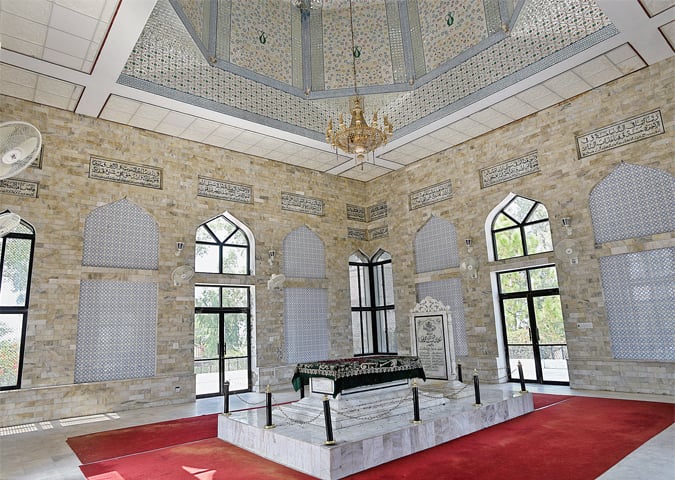Around 80 kilometres from Islamabad, the mausoleum of Sultan Mohammad Ghori, who conquered Delhi in 1192 and founded his sultanate in India, is a picture of neglect.
The mausoleum was built by nuclear physicist Dr Abdul Qadeer Khan in 1994-1995 and later handed over to the Punjab archaeology department.
Sultan Mohammad Ghori, also known as Shahabuddin Ghori, was a warrior of Turkish origin who travelled from Ghor, Afghanistan, and conquered Delhi in 1192. Ghori’s victory against the Rajput army paved the way for the first Muslim ruler of India, Sultan Qutubuddin Aibak.

In 1206, Ghori left for Afghanistan. He was in the Dhamiak village near Sohawa in Jhelum when he was assassinated along with three guards.
In 1994, Dr Khan built a mausoleum for Ghori. Locals say Dr Khan had employed a driver from the village who told him about its history, after which Dr Khan paid for the construction of the tomb.

“It was a simple grave until the 90s, and locals lit lamps on the grave. The land of the tomb was originally bought by retired Maj Gen Nawabzada Sher Ali Khan Pataudi, and his grave is also in the compound,” said Ashfaq Ahmed, who lives next to the tomb.
Pataudi is the second son of Nawab Ibrahim Ali Khan Pataudi and the great uncle of Bollywood actor Saif Ali Khan.

Three graves for the unknown guards have also been dug in the mausoleum – each grave is eight feet long and made with white marble.
“Earlier, the graves of the muhafizeen – the guards – were far away from the sultan’s grave, but it was reconstructed and the remains were shifted to the compound of the tomb in 1994,” grave digger Karamat Hussain told Dawn.
He said Pataudi had purchased the land around the grave of the sultan, and the tomb was constructed by Dr Khan. Mr Hussain said most people visit the tomb on Eid or on holidays.

The style of the building is influenced by Turkish and Mughal work, but many tiles have fallen down due to neglect. The gardens along the building are full of wild grass and untrimmed trees, and there are no flowers in the flowerbeds.
When contacted, the Punjab archaeology department’s Deputy Director North Maqsood Ahmad said the department was working to improve the tomb’s condition, and would start work on it soon. He added that the department deploys staff to manage the tomb regularly, and they have been provided accommodation there as well.
Published in Dawn, October 8th, 2017











































